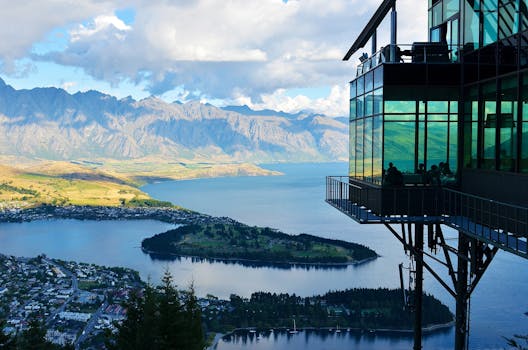The Complete Guide

New Zealand’s breathtaking landscapes and unique experiences don’t have to come with a hefty price tag. With strategic planning and insider knowledge, you can explore this stunning country without emptying your wallet. Here’s your comprehensive guide to planning an affordable New Zealand adventure.
Timing is Everything: When to Book and Visit
Booking your trip strategically can lead to significant savings:
- Book 4-6 months in advance: Flight prices typically increase as your travel date approaches
- Target shoulder seasons: September-October and April-May offer ideal weather, fewer tourists, and lower prices
- Avoid peak season: December-February (NZ summer) sees prices skyrocket, especially around Christmas and New Year
- Consider winter travel: June-August offers discounted accommodation in many regions (except ski destinations)
Flight Strategies for Your Wallet
- Set price alerts on flight comparison websites
- Be flexible with your dates – midweek departures often cost less
- Consider connecting flights rather than direct ones
- Look for airline sales, which typically occur 6-8 months before travel seasons
Transportation: Moving Around Affordably
Smart transportation choices can drastically reduce your New Zealand expenses:
- Rental car savings:
- Choose smaller, local rental companies instead of international chains
- Rent from major hubs like Auckland or Christchurch for better rates
- Plan a circular route to avoid one-way drop-off fees
- Skip airport pickup if possible – use airport shuttles ($20-30 NZD) to reach your accommodation first
- Book a smaller vehicle unless you specifically need a larger one
- When to skip the rental:
- In major cities with good public transport (Auckland, Wellington)
- For island-hopping when domestic flights make more sense
- Domestic flight tips:
- Book well in advance for inter-island travel
- Compare the cost of flights vs. ferry + driving time
- Consider budget carriers like Jetstar for domestic routes
Accommodation That Won’t Break the Bank
Where you stay significantly impacts your overall budget:
- Self-catering options:
- Hostels with communal kitchens ($25-35 NZD/night for dorms)
- Holiday parks with cabins and cooking facilities ($80-120 NZD/night)
- Airbnbs or holiday homes, especially good value for groups
- Money-saving accommodation tips:
- Book multi-night stays for discounted rates
- Consider less central locations with good transport links
- Look for accommodations that include free breakfast or parking
- Join loyalty programs if staying at multiple locations of the same chain
Eating Well Without Overspending
Food costs can add up quickly in New Zealand:
- Self-catering advantages:
- Shop at supermarkets like Pak’nSave or Countdown
- Visit local farmers’ markets for fresh, affordable produce
- Prepare simple meals and pack lunches for day trips
- Affordable dining out:
- Look for “early bird” dinner specials before 6pm
- Try food courts in major cities for diverse, budget-friendly options
- Bakeries offer tasty, inexpensive savory pies and sandwiches
- BYO (bring your own) restaurants let you save on alcohol markup
Free and Low-Cost Activities
New Zealand’s best experiences often come with no price tag:
- Free natural attractions:
- Hiking trails in national parks and reserves
- Scenic lookouts and photo opportunities
- Beautiful beaches and swimming holes
- City walks and botanical gardens
- Low-cost activities:
- Department of Conservation (DOC) campsites for stargazing
- Hot springs with low entry fees (like Hot Water Beach on Coromandel)
- Museums with koha (donation) entry days
- Guided walks offered by information centers
Evaluating Paid Tours and Experiences
Be selective about which paid activities are worth the splurge:
- Questions to ask before booking:
- Is there a similar, less expensive alternative?
- Does this offer unique value I can’t get elsewhere?
- Can I find discounts online or through my accommodation?
- Alternatives to expensive tours:
- Instead of helicopter tours ($300+ NZD), try scenic lookout points or affordable boat tours
- Replace guided treks ($150+ NZD/day) with self-guided hikes using DOC information
- Choose kayaking ($60-80 NZD) over jet boat rides ($120+ NZD)
Optimizing Your Itinerary for Savings
A well-planned itinerary not only enhances your experience but saves money:
- Reduce constant movement:
- Stay at least 2-3 nights in each location to minimize fuel costs
- Create hub-and-spoke itineraries rather than continuous one-night stays
- Plan activities in clusters based on geographic proximity
- Strategic routing:
- Start in Auckland and end in Christchurch (or vice versa) to minimize backtracking
- Consider flying between islands instead of taking the ferry with a vehicle
- Use public transport in major cities instead of paying for parking
Final Money-Saving Tips
- Get a local SIM card ($30-40 NZD) for data and local calls
- Bring a reusable water bottle – tap water is safe and free
- Take advantage of “happy hour” specials for drinks and dining
- Look into DOC passes if visiting multiple national parks
- Check group buying sites like BookMe for last-minute activity discounts
- Consider house sitting opportunities for free accommodation
By implementing these strategies, you can experience the magic of New Zealand while keeping your budget intact. Remember that some of the most memorable experiences in this country—watching a sunset over breathtaking mountains or connecting with friendly locals—don’t cost a thing.
